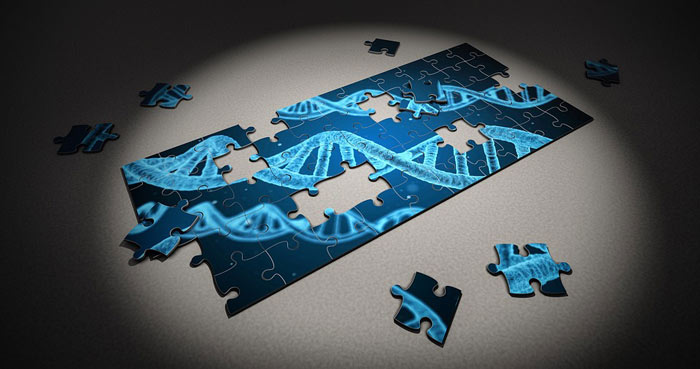 Do you think that high cholesterol is a problem for the elderly and overweight people? However, it is not so. It seems to have become a disease of modern civilization: residents of megalopolises face early atherosclerosis already at the age of 25-30 – a terrible consequence of high levels of bad cholesterol. We will talk about the unexpected causes of high cholesterol in young and slender people.
Do you think that high cholesterol is a problem for the elderly and overweight people? However, it is not so. It seems to have become a disease of modern civilization: residents of megalopolises face early atherosclerosis already at the age of 25-30 – a terrible consequence of high levels of bad cholesterol. We will talk about the unexpected causes of high cholesterol in young and slender people.
What kind of cholesterol is considered high
The indicator of total cholesterol is included in the biochemical blood test: if it is greater 5 mmol/l, you should consult a doctor. If it is over 8 mmol/l, then most likely you can not do without special medications (most often statins). The most unpleasant thing is that such test results can be revealed even in young and slim women who do not eat fast food and practice yoga regularly – that is, lead a relatively healthy lifestyle.
Bad and good cholesterol
Cholesterol is essential for the body – it is an important cell building material and a basis for hormone synthesis. However, there is a different kind of cholesterol. Low-density lipoproteins (LDL) are considered to be “officially” bad: their excess settles down on the walls of blood vessels, leading to the formation of atherosclerotic plaques. This can lead to heart attack, stroke, thrombosis, and death. That is why you need to control the level of cholesterol to avoid atherosclerosis.
Good cholesterol, or high-density lipoprotein (HDL), helps normalize the amount of LDL. These lipoproteins transport surplus cholesterol from the vascular walls into the liver where they are utilized, as if in a chemical laboratory.
The worst thing is when the total cholesterol level is increased due to bad cholesterol: its normal rates should not exceed 3 mmol/l. However, it sometimes happens that the overall level increases due to good cholesterol. If bad cholesterol level is normal, there is no need to worry
The norm of the good HDL cholesterol is from 1.2 mmol/L for women, and 1.1 mmol /L for men. Moreover, if this indicator ranges from 1.7 to 2.1, it is considered a good chance for longevity.
14 reasons why you may have high levels of bad cholesterol
The primary cause is the congenital pathology of lipid metabolism, most often hereditary.
Among the secondary causes, the following are widely known:
- Diabetes mellitus
- Obesity
- Overeating
- Lack of movement
- Smoking
- Hypertension
Let’s look a bit more detailed into what causes high cholesterol levels:
- Oral birth control. Not everyone knows that taking oral contraceptives (OCs) can also be a risk factor. High levels of cholesterol and triglycerides may be observed due to oral contraceptives. Of course, it does not happen to everyone who takes OC. However, this is not uncommon and widely known among doctors. Therefore, it is necessary to evaluate the lipid profile in patients who take OC.
- Another non-obvious risk factor is sugar. It would seem that high blood cholesterol is always associated with fatty food, not sweets. However, the latter is no less dangerous.
- Excess carbohydrates lead to an increase in triglycerides. They are deposited in the fatty tissue, and large fat depots are formed in the body. Thus, the fat can get into the bloodstream, and then into the liver. In this case, the liver synthesizes only bad cholesterol from fat.

- Renal insufficiency can also play its part in blood cholesterol levels because cholesterol is also removed through the kidneys. When they are dysfunctioned, the removal is disturbed, and bad cholesterol is deposited in the body. Therefore, high blood cholesterol is connected to the level of the renal marker – creatinine.
- Liver problems. As we have already understood, the liver plays a leading role in lipid metabolism. Therefore, high cholesterol is a reason to check the hepatic enzymes – ALT (alanine aminotransferase) and AST (aspartate aminotransferase).
- The thyroid gland hypofunction. Inadequate development of thyroid hormones increases the level of bad cholesterol.
- Sleep disturbance affects the production of hormones, slows the metabolism, and leads to the accumulation of cholesterol in the body. So, this factor can cause a lipid metabolism disorder.
- Chronic stress. It turns out that the chronic stress typical of big city inhabitants has a direct influence on blood cholesterol. Stress is linked to an adrenaline release. An elevated level of this hormone leads to vascular spasm and lipid metabolism disorders.
That’s why you can be a young and slim vegetarian who is doing yoga and does not eat anything fatter than nuts, but, if you experience constant stress, you can have higher blood cholesterol than those who love mayonnaise and fast food.
What you should do
Check your blood cholesterol
You should check your blood cholesterol once a year, starting with the age of 25. However, nowadays cardiologists and lipidologists recommend starting such an examination from the age of 15: atherosclerosis is getting younger.
Adhere to a balanced diet
If you already have high levels of bad cholesterol, doctors recommend a Mediterranean diet: seafood, fruits, vegetables, lots of greens, and olive oil.
Do regular cardio workouts
The more specific the recommendations, the easier it is to stick to them. Remember: to burn bad cholesterol effectively, you need to train 3-5 times a week for 40-60 minutes. At the same time, it is important that you keep the pulse of a medium intensity workout. It is calculated by the formula: 220 minus age and multiplied by 50. This is the minimum value for a cardio of average intensity. To calculate the maximum, you need to multiply the end figure by 75 and not to exceed this number.
For example, if you are 35 years old, then your heart rate during an average intensity workout should be from 92 to 138 beats per minute.
Most importantly – address a competent specialist
All of the above are only general recommendations on the way of life. Only a doctor – a cardiologist or lipidologist – can choose the treatment. Therapists and endocrinologists can also advise on cholesterol levels. These doctors may recommend additional examinations and, if necessary, refer you to a cardiologist or a lipidologist.









